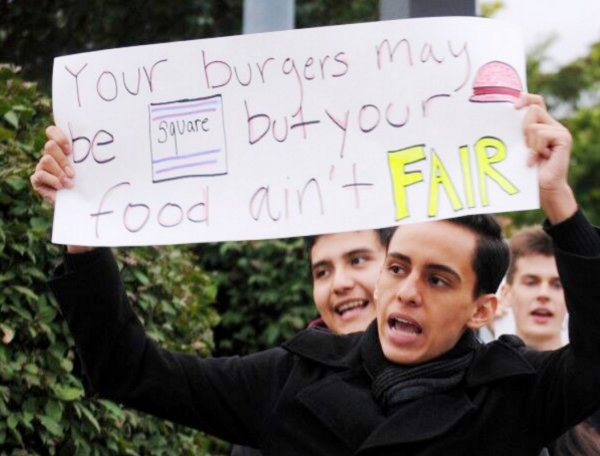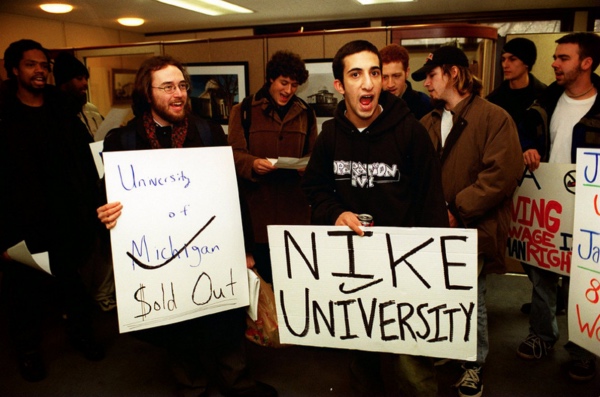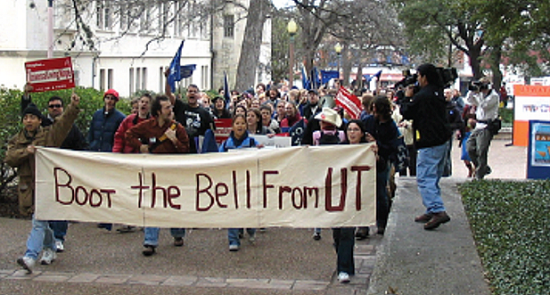
Wendy’s new ‘buy American’ campaign flies in the face of the company’s shift of tomato purchases away from Florida and the Fair Food Program to Mexico and the human rights crisis in the fields there…
Wendy’s has launched a flashy new marketing campaign, and the astounding contradiction at the heart of its pitch suggests a deeply cynical misreading of consumers’ capacity — of your capacity — for critical, independent thinking.
But before we continue, here below is a television ad, aired earlier this month, promoting the new campaign:
The ideals behind the campaign — supporting American industry, buying fresh, local ingredients — are indeed noble. The American beef industry should rightly be pleased with Wendy’s new marketing push.
But you’ll recall that another key ingredient in those juicy Wendy’s burgers has a very different backstory. Indeed, when it comes to tomatoes, Wendy’s stopped buying from Florida altogether following the implementation of the Fair Food Program here and shifted its purchases to Mexico. Wendy’s decision to abandon its Florida suppliers was one of the principal reasons for the national boycott launched at the start of the recent Workers’ Voice Tour.

So to launch an advertising campaign touting those ideals as virtues to be associated with Wendy’s hamburgers — when the story behind the tomatoes on those burgers is so diametrically opposed to the campaign’s central narrative — constitutes the very definition of cynical. Indeed, it assumes that consumers are either too uniformed to see the contradiction, too lazy to put two and two together, or simply too disinterested to care.
It is so cynical, in fact, that it could actually backfire. And if history is any guide, it just might.
Stick with us here for a moment as we take a trip through the wayback machine to a time long, long ago… setting the dials to September, 2001…
Where have we seen this sort of misreading of the consumer mind before?

Way back in 2001, at the dawn of the Campaign for Fair Food, we discovered a document in the course of our research into Taco Bell that truly boggled our minds.
In a press release dated September 23, 1999, Taco Bell published its marketing research findings on the company’s target youth demographic under the headline: “New ‘Age of Hedonism’ emerges in 18-24 year olds; Nationwide survey reveals self-indulgence trend reaches all time high with younger generation.” The document went on to use terms like “addicted to constant stimulation,” “short attention spans,” and “hedonistic impulses” to describe the young people that made up the core of the fast-food giant’s market, a market the report seemed to reduce to a mob of unthinking, uncaring, consuming machines compelled by impulses beyond their control. The report concluded:
According to Irma Zandl, President of The Zandl Group, the country’s leading authority on tracking emerging youth trends, “We’ve never seen a more intense or extreme trend since we started monitoring 18-24 year olds back in 1986.”
But that analysis didn’t jibe with the kind of thoughtful, committed young people we were seeing as we traveled from state to state, school to school, back in the early days of the Taco Bell boycott. Instead, we saw students and youth standing up to injustice and lending their voices to struggles for human dignity from the emerging anti-sweatshop movement to the intense new activism around the economic and social inequities of globalization. Indeed, it was that very sense of engagement that gave us — an unknown farmworker organization with virtually no resources launching a national campaign against a multi-billion dollar corporation around a cause familiar to no one — reason to believe that we had even a glimmer of a hope of success as we declared the Taco Bell boycott that year.

And so we decided to share the Taco Bell press release with the nascent Fair Food Nation and to ask our readers what they thought about the company’s conclusions, writing:
SO… what do you think? Makes you want to rush out and buy a Chalupa today, doesn’t it? Of course, according to Taco Bell, you have no other choice.
We beg to differ.
It is time to show Taco Bell that we are more than just “self-indulgent” cash machines “addicted to constant stimulation“.
It is time to show Taco Bell that more than “insatiable cravings” go into our buying decisions — that human rights and the dignity of labor also enter into our thinking when we decide where to spend our money.
It is time to spend our money elsewhere, until Taco Bell recognizes the importance of the farmworkers’ contribution to the food industry, meets with the CIW, and takes substantive action to help end farmworker poverty.
Show Taco Bell that FREE WILL wins out over “insatiable cravings” every time…
That post helped launch the national Student/Farmworker Alliance, the student movement that organized the “Boot the Bell” campaign on hundreds of campuses across the country and contributed immeasurably to the ultimate success of the Taco Bell boycott.

To its credit, Taco Bell eventually came to understand that young people do indeed care about more than just the buzz surrounding the food they eat, that its customers care too — and deeply so — about the working conditions on the farms where the food they eat is grown and picked.
And so, just five years after the publication of those marketing research findings, in March, 2005, Taco Bell became the first fast-food company to sign a Fair Food agreement with the CIW, and their leadership set the example for 13 more multi-billion dollar retail food companies to follow suit and sign agreements to improve the wages and working conditions in their tomato supply chains in the decade that followed. Among those 13 companies were all the other leading fast-food companies, with one exception: Wendy’s.
Will Wendy’s cynical view of consumers’ consciousness prevail? We don’t think so…

What, then, is the lesson to be drawn from our brief trip back in time? The answer is clear: It never pays to underestimate your customers. It didn’t in 1999, and it won’t today in 2016.
Taco Bell was so sure that its key market demographic — 18-24 year olds — cared only about stimulating themselves that it published a press release about its “findings,” only to find out that consumers, and especially younger consumers, care deeply about justice and human rights, too.
Wendy’s, with its latest marketing campaign, seems to be standing at the top of that same slippery slope. To launch an aggressive ‘Buy American’ campaign at the very same time that consumers are learning about the fast-food giant’s decision to shift its tomato purchases to Mexico after Florida growers implemented the most progressive labor rights program in US agriculture today can only be seen as another case of a company tragically underestimating its customers’ intelligence.
Many years ago, Wendy’s might have gotten away with this sort of marketing game. Back in the last century, before the internet, before social media, what happened in corporate supply chains pretty much stayed in corporate supply chains. Whatever a company chose to tell you about its suppliers’ operations is pretty much what you knew, because information — about human rights, about exploitation, about slavery — wasn’t literally at your fingertips like it is today.

But the game has changed, and today at the click of a button people everywhere can learn about human rights violations anywhere. And with a few more clicks they can find out exactly what the companies where they shop are — or aren’t, as the case may be — doing about those human rights violations. Click here to try it for yourself.
Who knows? Nearly two decades ago, Taco Bell’s very public underestimation of its customers helped launch a student movement that itself helped launch the Campaign for Fair Food.
Perhaps today, nearly two decades later, Wendy’s very public gamble that its customers aren’t watching and don’t care about the naked hypocrisy of its newest marketing campaign might have similar unintended consequences.
Only time will tell.
